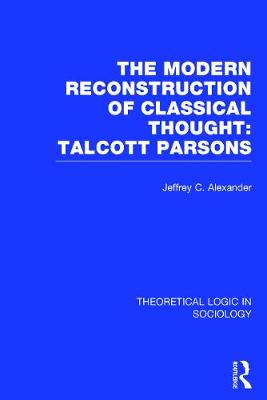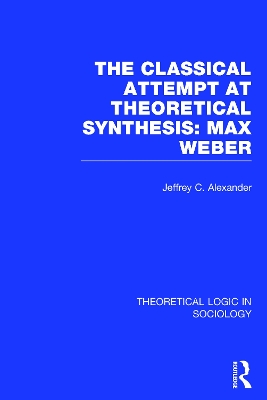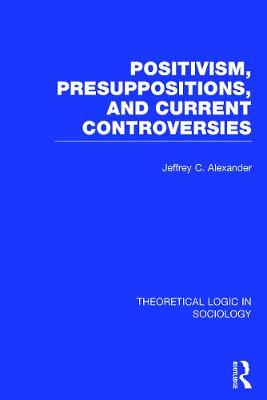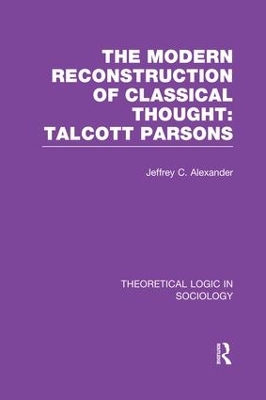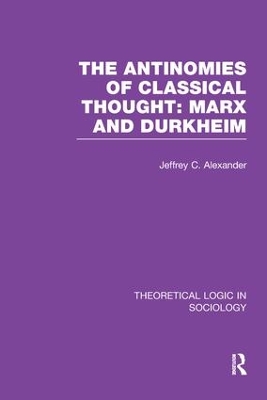Theoretical Logic in Sociology
5 total works
This four volume work, originally published in the 1980s and out of print for some years, represents a major attempt to redirect the course of contemporary sociological thought. Jeffrey Alexander analyses the most general and fundamental elements of sociological thinking about action and order and their ramifications for empirical study. He insists that sociological thought need not choose between voluntary action and social constraint.
The four volumes can be read independently of one another as each presents a distinctive theoretical argument in its own right. The first volume is directed at contemporary problems and controversies, not only in ‘theory’ but in the philosophy and sociology of science. The last three volumes make interpretations, confronting the individual theorists, and the secondary literature, on their own terms.
Classical Attempt at Theoretical Synthesis (Theoretical Logic in Sociology)
by Jeffrey C. Alexander
The limits of one-dimensional theory are strikingly revealed in the schools that the founders of the major sociological traditions established. In this volume Max Weber is presented as the theorist who laid out new starting points and the author considers his work as a response, in part, to the idealist tradition which (in Volume 2), he maintains that Durkheim represents. As Weber was less able to avoid ambiguity, the author examines the weaknesses and efforts at ‘paradigm revision’.
Positivism, Presupposition and Current Controversies (Theoretical Logic in Sociology)
by Jeffrey C. Alexander
This volume begins by challenging the bases of the recent scientization of sociology. Then it challenges some of the ambitious claims of recent theoretical debate. The author not only reinterprets the most important classical and modern sociological theories but extracts from the debates the elements of a more satisfactory, inclusive approach to these general theoretical points.
Modern Reconstruction of Classical Thought: Talcott Parsons
by Jeffrey C. Alexander
In this volume the author maintains that sociology must learn to combine the insights of both Durkheim and Marx and that it can only do so on the presuppositional ground that Weber set forth. Alexander maintains that the idealist and materialist traditions must be transformed into analytic dimensions of multidimensional and synthetic theory. This volume focusses on the writing of Talcott Parsons, the only modern thinker who can be considered a true peer of the classical founders, and examines his own profoundly ambivalent attempt to carry out this analytic transformation.
The Antinomies of Classical Thought: Marx and Durkheim (Theoretical Logic in Sociology)
by Jeffrey C. Alexander
This volume challenges prevailing understanding of the two great founders of sociological thought. In a detailed and systematic way the author demonstrates how Marx and Durkheim gradually developed the fundamental frameworks for sociological materialism and idealism. While most recent interpreters of Marx have placed alienation and subjectivity at the centre of his work, Professor Alexander suggests that it was the later Marx’s very emphasis on alienation that allowed him to avoid conceptualizing subjectivity altogether. In Durkheim’s case, by contrast, the author argues that such objectivist theorizing informed the early work alone, and he demonstrates that in his later writings Durkheim elaborated an idealist theory that used religious life as an analytical model for studying the institutions of secular society.
